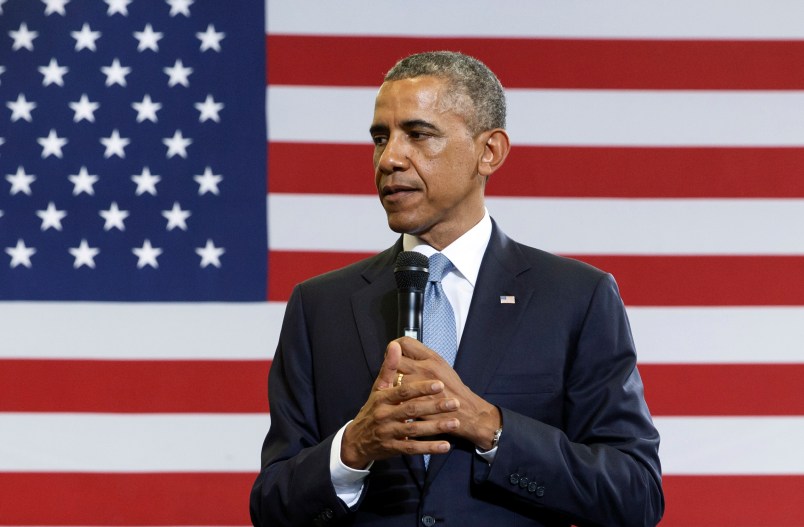A federal appeals court dealt a huge blow to Obamacare on Tuesday, banning
the federal exchange from providing subsidies to residents of the 36 states it serves.
A divided three-judge panel on the D.C. Circuit Court of Appeals ruled that the text of the Affordable Care Act restricts the provision of premium tax credits to state-run exchanges. The two Republican appointees on the panel ruled against Obamacare while the one Democratic appointee ruled for the law.
“We conclude that appellants have the better of the argument: a federal Exchange is not an ‘Exchange established by the State,’ and section 36B does not authorize the IRS to provide tax credits for insurance purchased on federal Exchanges,” Judge Thomas B. Griffith wrote for the court in Halbig v. Burwell.
His ruling was joined in a concurring opinion by George H. W. Bush-appointed Judge A. Raymond Randolph, who said it would be a “distortion” to let the federal exchange provide subsidies. “Only further legislation could accomplish the expansion the government seeks,” he wrote.
Carter-appointed Judge Harry T. Edwards voted to uphold the subsidies.
“This case is about Appellants’ not-so-veiled attempt to gut the Patient Protection and Affordable Care Act,” Edwards wrote in his dissenting opinion. He called said the majority’s reading of the statute amounts to “a poison pill to the insurance markets in the States that did not elect to create their own Exchanges. This surely is not what Congress intended.”
The ruling is very troubling for the Obama administration because the subsidies are critical to the success of Obamacare. The law encourages states to build their own exchange, but if they don’t the federal government operates one on their behalf. The subsidies, or premium tax credits, exist to help Americans between 133 percent and 400 percent of the poverty line buy insurance. That imperils the practicality of the individual mandate to get covered and the market regulations to protect sick people.
“We reach this conclusion, frankly, with reluctance,” Griffith wrote for the court. “At least until states that wish to can set up Exchanges, our ruling will likely have significant consequences both for the millions of individuals receiving tax credits through federal Exchanges and for health insurance markets more broadly. But, high as those stakes are, the principle of legislative supremacy that guides us is higher still.”
White House spokesman Josh Earnest said the Obama administration will “ask for a ruling from the full DC Circuit” which could potentially reverse the result. He stressed that while the case is pending on appeal, the federal exchange will continue to provide subsidies.
The appeal to the full bench, an en banc vote, would be cast by the three judges who heard the case as well as 10 other judges on the active bench, according to the DC Circuit’s rules. Such a vote may be friendlier to Obamacare as it would feature 8 Democratic appointees and 5 Republican appointees. Four of the judges on the court were appointed by President Barack Obama, three of them after Senate Democrats eliminated the 60-vote threshold for most nominations in November to overcome Republican obstruction.
This article has been updated. The ruling is available below.










